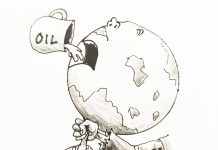In a town square just days ago, two tricycle drivers almost clashed with each other, bitterly cursing the other’s candidate as if his life were at stake. These are not unusual scenes all over the country, but are increasingly happening. Political competition, the downfall of politicians, has filtered down to the veins of ordinary citizens, making supporters street and social media fighters.
We are becoming a nation where political allegiance now dominates reason, decency, and even long-standing friendships. Neighbors fight each other, families are torn apart, and barangay chat groups are time bombs set to detonate. One tweet, one meme, one off-hand comment on a candidate can set off a snowballing of abuses. And the most tragic part? The candidates whom they campaign for sit idly by and watch with amusement, or calculatingly, but never intervene to end the madness. These fans bleed for individuals who would never bleed back.
The candidates are usually out-spoken by their supporters. Their fists do the punching, their mouths do the mudslinging, and their hard-earned, small, limited cash goes to tarpaulins, gas, and logistics that only the mighty benefit from. They lose sleep and their peace of mind for names who might not even know they exist. All this while the politicians they so revere are comfortably ensconced behind tinted glass and armed escorts, rehearsing for photo opportunities and press releases. There’s something tragic about not being repaid in loyalty, and that’s much of what all this is: misplaced, unilateral loyalty.
Part of the cause of this increased hostility is how politics has been politicized into emotional theater in this country. We’ve learned to be team players like fans at a basketball game—our team vs. their team. Reasons, platforms, records, and even criminal records are thrown out the window, replaced with color-coded placards and sloganized campaign mantras. The instant the fever breaks out, all criticism is a personal grudge, and all opposing views are a call to war. It’s not democracy at work—it’s fanaticism masquerading as patriotism.
Social media makes the disease worse. It pays for the loudest, not the brightest. It makes every political debate a scream-a-thon, where control, not clarity, is the aim. Algorithms reward individuals with more of what they already have, and everyone is now the hero of his or her own echo chamber. Mix in a dash of arrogance, some disinformation, and a keyboard’s anonymity, and what do we have? Thousands of small tyrannical bullies, each only caring about their own candidate being able to save the country, each wanting to destroy anyone who disagrees.
But don’t act like it’s all just meaningless noise. Actual harm is being done. School teachers are targeted. Public officials are bullied. Campaigns are disrupted. Physical violence isn’t just threatened—it’s real. Blood has been shed in the name of loyalty, as if casting a vote were stabbing too. These wars are not arguments; they are toxic strains in a delicate democracy already. They distract from real issues, shut out meaningful conversation, and turn elections into a time of fear instead of excitement.
What is more disturbing is how little the masses appear to learn from history. We’ve experienced decades of electoral disillusionment—politicians reneging on promises, stealing money, and vanishing after an election win—yet with each election cycle, the disciples reappear, angrier and more militant than ever. Their memory is short, but their wrath is long-term. And yet, somehow, the cycle continues: wounds not licked, lessons not learned.
This nation requires more rational heads and fewer blind fury. Political allegiance needs to be reflective, critical, and driven by a conscience that prioritizes the common good. If only individuals would take a step back and realize that they are tearing themselves apart for individuals who might never return the favor in the future, then possibly they would hesitate before screaming, punching, or tweeting. Loyalty must be earned, not dispensed like sweets from campaign caravans. And no politician, however well-liked, is worth a damaged friendship, a battered face, or a lost life.




